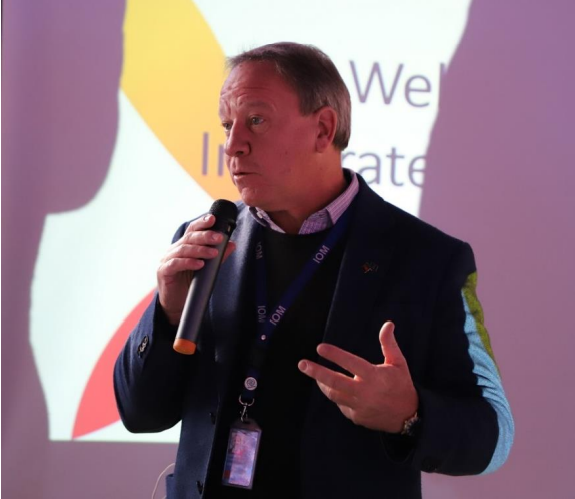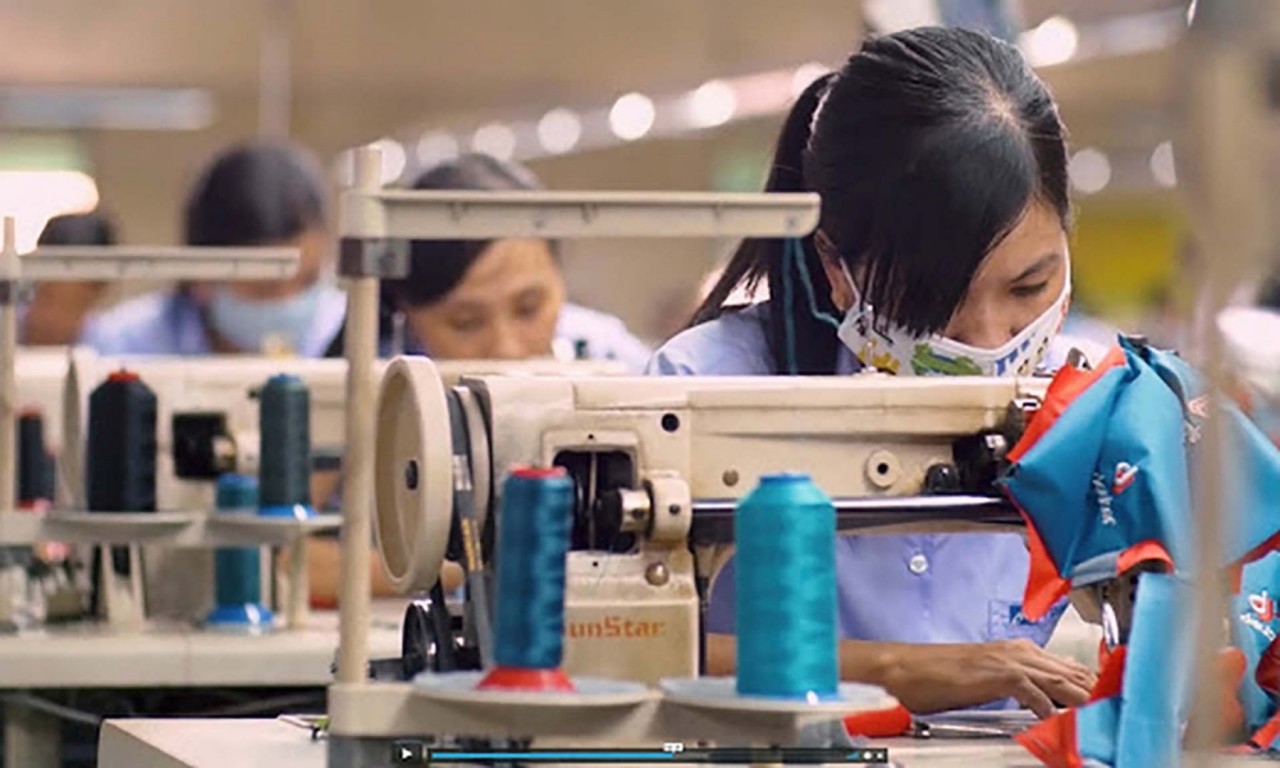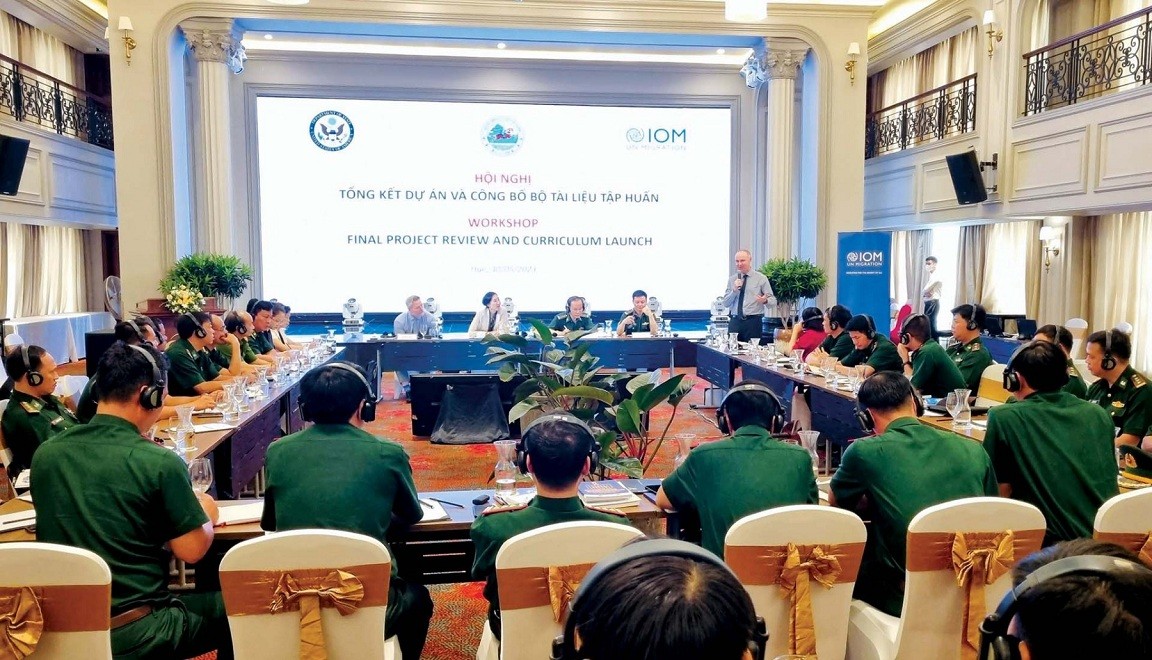
Vietnam has made efforts to protect the rights and interests of migrants: IOM official
Latest
 |
| Mr. Stuart Simpson, IOM Deputy Regional Director for Asia Pacific. (Source: IOM) |
Could you share some impressions on Vietnam's efforts in promoting safe, orderly and regular migration?
As one of a few countries in the world that have a National Implementation Plan (NPA) for the Global Compact for Safe, Orderly, and Regular Migration (GCM), I applaud the active role of the Government of Vietnam in materializing the agreement through passing this NPA by the Prime Minister on March 20, 2020. It shows how Vietnam has cooperated with other countries and international organizations regarding international migration issues. It also shows the Government’s commitment to better manage its international migration.
In 2022, the total remittances to Vietnam rose to more than 18 billion USD, making Vietnam one of the three biggest recipients in Asia Pacific and among the top 10 globally in terms of remittances. Therefore, Law 69/2020/QH14 on Contract-Based Vietnamese Overseas Workers (or Law 69), effective from January 1, 2022, plays a pivotal role in ensuring the protection of Vietnamese migrant workers and their legitimate rights and interests as well as practices for fair recruitment of the migrant workers.
In the last few years, Vietnam has been making serious efforts to create a transparent migration environment, protect the legal rights and interests of migrants, and take actions against human trafficking. One example is the implementation of the third Human Trafficking Prevention and Control Programme for 2021-2025, with a vision for 2030, which includes new solutions and tasks to prevent and fight human trafficking in all areas.
How do you feel about Vietnam's participation in international commitments on migration, such as the Global Compact for Safe, Orderly and Regular Migration (GCM Agreement)?
The GCM is the first inter-governmentally negotiated agreement on migration, and it is an effective tool for States to discuss how best to address challenges to human mobility without compromising the human rights of people and states' sovereignty.
By actively contributing to the development process of the GCM and adopting the GCM's National Implementation Plan, Vietnam has demonstrated its strong commitment to promoting common understanding, shared responsibilities, and unity of purpose regarding migration, "making it work for all."
The national Conference on reviewing the implementation of GCM, jointly organized by IOM and the Ministry of Foreign Affairs in November last year, attracted a large audience of government agencies at different levels, institutions, civil society, and academia. At the conference, it was reported that 57 localities and 7 ministries and agencies in Vietnam had issued the Plan of Implementation of the GCM, and that's a remarkable achievement.
Beyond this success, IOM will continue to further assist Vietnam further to strengthen interagency cooperation in all aspects of migration governance, promote data-driven evidence, and share best practices in the GCM implementation, helping Vietnam's goal of achieving Sustainable Development Goals.
 |
| Domestic female migrant workers are the object of concern and support. (Source: baophunuthudo) |
What are some of the highlights among the projects IOM implements in Vietnam to further facilitate safe and orderly migration for Vietnam's SDG?
In Vietnam, as a leading UN agency for migration, IOM has worked closely with government agencies, civil society, private sectors, and migrants to find solutions to migration issues, provide humanitarian assistance to migrants in need, and promote cooperation in dealing with migration-related challenges.
To support Vietnam’s commitment under the Human Trafficking Prevention and Control Programme for 2021-2025, with orientations toward 2030, under the support of the UK Home Office, IOM has collaborated with both Government agencies and local actors to realize their potential to reduce individual and community vulnerabilities to modern slavery including human trafficking through behavior change communication, strengthened access to justice and victim-centered rehabilitation and reintegration support.
Between 2018 and 2022, the project capacitated more than 1,700 counter-trafficking actors, raised the awareness of over 2.93 million people about human trafficking prevention and safe migration, and helped 1,680 people gain access to local employment opportunities and common labor migration pathways.
IOM is proud of our work on improving access of low-skilled workers to essential skills such as digital, soft, job application, and entrepreneurship skills, helping their employment transformation in a digital working environment while boosting their adaptation and resilience to change. For this initiative, IOM, in partnership with the Vietnam General Confederation of Labour, the General Directorate of Vocational Training, and Microsoft, has developed and promoted the e-learning platform congdanso.edu.vn. After nearly two years, the e-learning platform has benefitted over 13,000 Vietnamese learners (approximately 51% women), especially internal migrant workers.
At the same time, IOM supported capacity building of law enforcement agencies at central and provincial levels in the fight against human trafficking and people smuggling and provide reintegration support to the provinces and ministries and increased expertise, resources, and personnel to roll out and implement these legal policies related to supporting human trafficking victims.
For example, through IOM’s “Frontline training for Border Guards in Border Areas of Vietnam” project, funded by the Bureau of International Narcotics and Law Enforcement Affairs (INL) of the United States Department of State, a Training Curriculum on Counter-Trafficking and Victim Protection for frontline Border Guard officers was developed. It received the endorsement of the Ministry of Defense and was used in training for 436 frontline officers in 12 border provinces, equipping them with the necessary knowledge and skills to combat trafficking effectively.
We also work on advocating for ethical recruitment to ensure the rights of labor migrants, improving the health of migrants, and areas related to climate change. Soon, we hope to assist Vietnam to enhance a database on trafficking in persons as well as a database on international migration. At the same time, we work with our government counterparts to enhance the migration governance legal framework towards aligning with international standards, contributing to promote safe, orderly, and regular migration.
Vietnam is a member of the United Nations Human Rights Council for the term 2023-2025. What is your expectation of Vietnam's actions to further promote the rights to migration?
We congratulate the Government of Vietnam for being elected as a United Nations Human Rights Council member for 2023-2025. Serving as a member of the UN Human Rights Council is a great opportunity, but it also comes with great responsibilities, and we hope that Vietnam will take the lead to demonstrate the highest standards of respect for human rights, both domestically and internationally, including for the rights of the people on the move.
This is an opportunity for Vietnam to be a leader in different areas, including advocating for human rights-based approaches to combat climate change and addressing migration-related issues. It also comes with the responsibility to show evidence of the implementation of recommendations Vietnam received as a member of the Council.
Finally, Vietnam will be expected to represent the ASEAN region and sharing its experience while responding to human rights issues as they arise around the world, cooperate fully with the Council’s mechanisms. This is also a great chance for Vietnam to offer technical assistance and guidance to support the sustainable development goal of the region.
 |
| The Workshop to launch the 'Training Curriculum on Counter-Trafficking and Victim Protection' and to wrap up the project 'Frontline training for Border Guards in Border Areas of Vietnam' on May 30. (Source: IOM) |
The current situation of climate change has significantly impacted safe migration. In your opinion, what do we need to do to minimize the impact of climate change on migration?
The Intergovernmental Panel on Climate Change (IPCC) concludes that climate change impacts, combined with rapid population growth in areas exposed to climatic hazards, will likely result in more significant displacement in the future, and permanent relocation of populations may become increasingly necessary.
As one of the countries in the Mekong Delta, Vietnam has already faced the grim impact of sea-level rise, saltwater intrusion, severe droughts, land subsidence and other climate impacts. According to the Mekong Delta Economic Report 2020, 1.3 million people have left the MDR in the last decade due to a lack of cultivation land, a lack of jobs, income generating opportunities, and in anticipation of disasters. In 2022 alone, there were about 353,000 internal displacements caused by disasters, and we can expect this number to increase very soon.
Climate change is increasingly affecting the lives and mobility of people, especially vulnerable populations who are still largely dependent on primary livelihoods. The 2019 Population and Housing Census reported that the outward migration rate of 45‰ in the Mekong Delta is the highest among the country’s regions, which is more than double the country’s average outward migration rate of 20‰.
In the long term, forced migration can significantly affect the country’s economy, safety and livelihoods and threaten the lives of vulnerable groups such as people living in poverty, women, children and elderly, ethnic minorities, and people living with disabilities.
IOM has been conducting studies about climate- induced human mobility in the country and the region. Some studies done by IOM in cooperation with other institutions have shown that voluntary migration can improve economic growth, well-being, and climate resilience of local rural people, migrants, and those staying behind. However, migration and resettlement are limited in the development debate and agenda.
Therefore, Vietnam should start promoting the mainstreaming of climate change, migration, and resettlement issues and putting relevant policies and strategies in place to minimize the impact of population displacement.
In response to climate impacts, migration may range from mobility as a proactive adaptation strategy to forced displacement in the face of life-threatening risks. At this instance, the Government needs to support people who desire to stay as long and safely as possible in their home areas through investments in disaster risk reduction measures and local adaptation, including capacity building to assist provinces with managing environmental risks and land use. Vulnerabilities need to be addressed to reduce the risk of displacement and other challenges associated with environmental degradation and disasters.
On the other hand, when people are forced to flee the impacts of climate change or choose to migrate as a form of adaptation, the Government of Vietnam should expand access to protection for these displaced individuals and groups.
Often, the individuals most at risk are the least able to relocate. Resilience and adaptation plans must consider accessibility, child protection, disability rights, gender equity, and protection needs for populations in vulnerable situations. To ensure equity and inclusion, consultations with individuals and communities vulnerable to climate change should inform the Government’s responses and plans to address the climate change impacts on migration. Any planned relocations must respect and maintain household, community, social cohesion, and kinship ties and avoid separating families.
It is also vital to invest in strengthening the ability of specialized institutions to predict and adapt to various forms of climate change so that migrations may be planned or, in some cases, avoided altogether.
Therefore, IOM stands ready to assist Vietnam to strengthen the nation’s communities’ climate adaptive and disaster prevention capacities focused on the mobility-movement management aspect. Addressing migration challenges requires collaborative efforts across various sectors. We need to create a cooperation mechanism among Government, businesses, civil societies, and other organizations to address this issue and raise awareness of migration impacted by climate change, including ensuring people most affected can make informed decisions in response to the effects of climate change.
Thank you!












